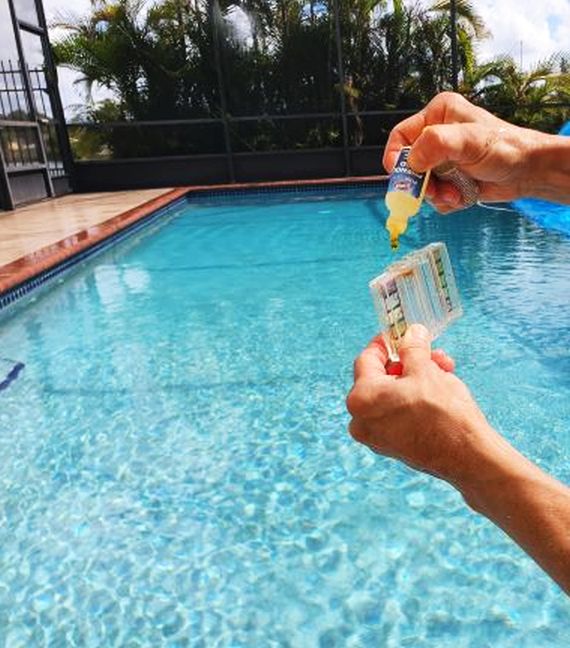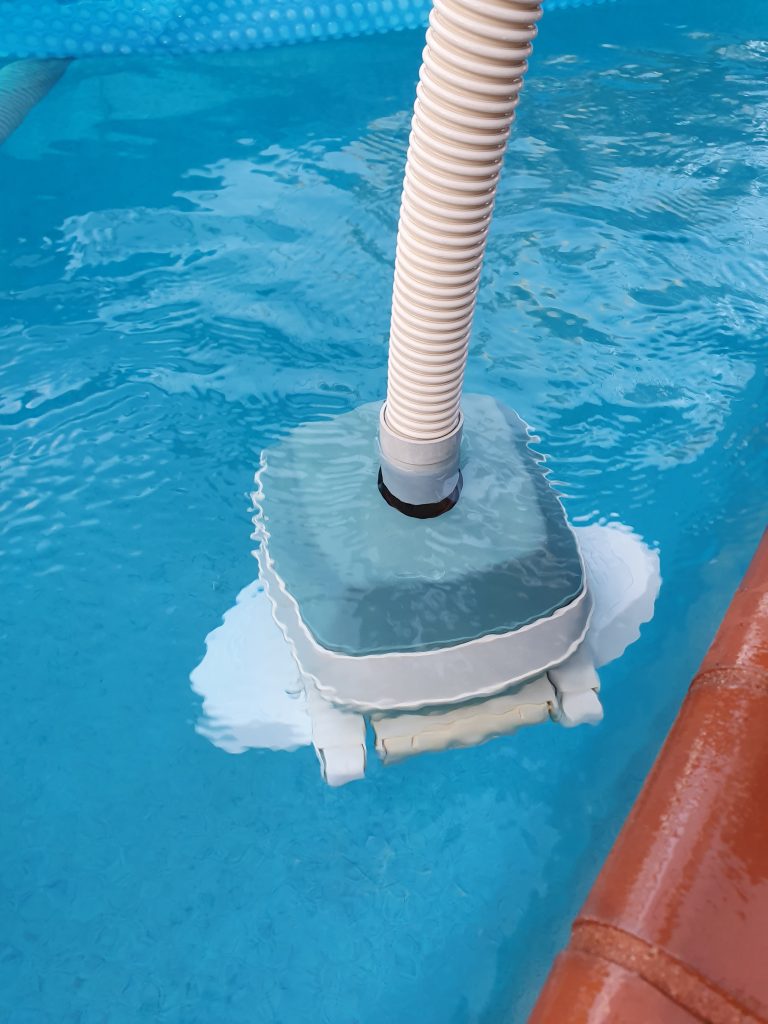Water

Balance the chemicals 
Use a navigator
Top 10 Things That Will Negatively Effect Pool Water Chemistry
What makes good pool and spa water go bad so quickly? Unfortunately, most anything in the environment can throw off your pool and spa water chemistry. Even your neighboring yards, and the swimmers themselves, can cause problems with your water chemistry. Here are some things that can negatively affect your pool and spa water.
Swimmers and family pets
Your family and friends can throw your water balance off. Detergents and beauty aids like shampoos, conditioners, hairspray, hair gel, soaps, sunblock, perfumes, pretty much anything can alter your pool’s chemistry. This is the reason why it’s always best to shower before swimming. But keep that sunscreen on; we wouldn’t want anyone to burn. Family pets can also cause problems, particularly due to flea and tick treatments.
Rain water
Rain water is acidic, so it will naturally lower your pool and spa water’s pH. Remember your pH should not fall below 7.2 PPM (Parts per million) or your water can become corrosive and cause damage to your pool’s surfaces and equipment. Pool water with low pH is also uncomfortable for swimmers, and chlorine will expend itself more rapidly.
Rain water can also dilute the chemicals in your pool. It’s not uncommon, when gone untreated, to find your pool suddenly cloudy or with an algae outbreak. It is very important to monitor your pool’s water after, and perhaps during, a rain storm.
Source water
Believe it or not, replacement or new source water from your well or garden hose can cause problems for you. Don’t assume well or tap water is good water for a pool. Well water often contains high levels of iron (recommended iron level of pools should be <0.3 PPM, <0.1 PPM for spas), while municipal water’s calcium hardness can be too high. For example, the typical hardness in Phoenix tap water is as high as 1000 PPM – that’s 700 PPM above the high end of the maximum recommended pool water concentration.
Circulation
Adequate pool water circulation is key! Bacteria and algae find it much more difficult to thrive in moving water. Moving water also maximizes your sanitizer’s effectiveness. Hayward recommends circulating your water during daylight hours, for at least 10 hours. This will vary due to bather load, water temperature, wind, rain, sunlight and pool chemistry itself.
Chemicals
Some pool chemicals actually contain minerals that can add to a calcium problem. You pool water’s calcium hardness level should be maintained between 200-400 PPM.
You should also remember that not all chemicals and chlorine types and brands are created equal. Sometimes that deal you scored at a discount store is no deal at all. Read this great article on our PoolSide blog on chlorine purity.
Phosphates
There’s been plenty of talk about removing phosphates from pool water. In truth, phosphates do not consume chlorine and do not combine with chlorine. Rather, phosphates promote the growth of algae (the green, slippery stuff in a pool) which then consumes chlorine as it tries to destroy the algae. The net result is that you can be left with less than the desirable amount of chlorine in your green pool.
Sun (UV Light)
Over time, sunlight and evaporation cause the chlorine and other chemicals in pool water to lose their effectiveness. Chemicals that are designed to disinfect swimming pools have chlorine concentrations ranging from approximately 12 to 95%. The concentration must be high because the chemicals are designed to be diluted in water.
In a salt chlorinated pool, UV light will speed up the conversion of chlorine back to salt. A chlorine stabilizer (sort of like sunblock) will dramatically slow down this conversion keeping more chlorine available for a longer time. Without this proper protection, the life span of the chlorine is greatly reduced.
Wind
Wind might sound a bit farfetched, but hear us out. Let’s say your neighbor on the right is treating their lawn with lime, while your neighbor to the left is fertilizing plants and shrubs. While your neighbor across the street is treating their property for insects, and overhead your local community is spraying for gypsy moths or some other critters. All of these, among other things, will be airborne and can cause problems for you and your pool’s water.
Heat
Your pool’s water temperature will also have an effect on chlorine breakdown. Remember science class – many bacteria species thrive in warmer water. When bacteria proliferate, free chlorine is consumed more quickly. The higher your pool’s water temperature is, the greater the tendency to cause scaling. The ideal temperature for pool water is 78° to 82° while a spa should not exceed 104°. Temperature can significantly affect water balance. When water is consistently above 90°, scale formation can develop. To prevent these problems, heated pool water should be tested more frequently.
Dirt and Debris
Ok this one may be obvious to you. Leaves, cuttings, pretty much anything organic will eventually break down and cause water problems for you. Skim and clean your pool regularly and this should keep this #10 issue at bay.
Remember: Clear water doesn’t mean good water, but good water will be clear.
